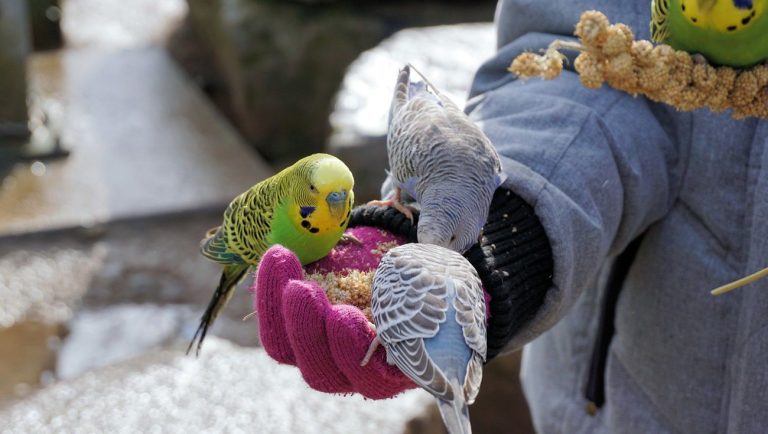The Ultimate Guide to Parrot Care: 8 Essential Tips for a Happy and Healthy Bird
Parrots, with their vibrant plumage and captivating ability to mimic human speech, make enchanting companions. However, ensuring their well-being requires diligent care and attention. This comprehensive guide outlines eight crucial aspects of parrot ownership, empowering you to provide the best possible life for your feathered friend.
1. Maintaining a Hygienic Environment: Preventing Bacterial Growth
Parrot droppings and feathers create a breeding ground for bacteria in warm, humid environments. To safeguard both your parrot’s and your family’s health, diligently clean and disinfect the cage, perches, and all surfaces your parrot frequently contacts. If your parrot interacts in human-occupied areas, use protective coverings to prevent contamination from droppings and shed feathers. Regular cleaning prevents the spread of disease and promotes a healthier living space.
2. Recognizing and Preventing Common Parrot Illnesses
Preventative care is paramount. Avoid situations where your parrot might ingest unsuitable items. Food poisoning and digestive issues are common parrot ailments, often stemming from the consumption of unclean food or non-edible objects. Careful supervision and a bird-safe environment are crucial.
3. Understanding Parrot Dietary Needs: Cooking and Food Safety
Parrot dietary requirements differ significantly from human diets. Avoid seasoned or spiced foods. Always allow cooked foods to cool to room temperature before serving. Monitor your parrot for diarrhea after meals, which could indicate a problem with food preparation. Crucially, ensure meat, fish, and eggs are thoroughly cooked and that frozen food is completely thawed before feeding. Never feed your parrot foods known to be toxic to birds.
4. Thoroughly Cleaning Fruits and Vegetables
When offering fruits and vegetables, meticulous cleaning and disinfection are essential. Soak produce in a bowl of water with a small amount of salt or lemon juice for five to ten minutes, then rinse thoroughly with clean water. This removes pesticides and potential contaminants.
5. Maintaining the Ideal Environmental Temperature: Avoiding Heat Stress
Maintaining a comfortable temperature is vital for your parrot’s well-being. Uncomfortable temperatures weaken your parrot’s immune system, increasing susceptibility to illness and potentially leading to death in extreme cases. Monitor the temperature carefully and provide a climate-controlled environment.
6. Wing Trimming and Parrot Safety: A Balanced Approach
Wing trimming can help prevent injuries from accidental flights – collisions with walls, windows, or other pets. However, remember that flight is crucial for a parrot’s physical and mental well-being. Wing clipping should be a considered decision, ideally done by a veterinarian or experienced avian professional, aiming for a balance between safety and the parrot’s natural instincts.
7. Providing Proper Ventilation and Shade: Combating Heatstroke
Parrots are highly susceptible to heatstroke. Keep your parrot in a well-ventilated, shady area, away from direct sunlight. Avoid placing cages in direct sunlight. Increase fruit and vegetable intake during hot weather, and use water misting to cool the environment if necessary. Be vigilant, as temperatures above 35°C (95°F) can cause restlessness, while temperatures above 37°C (98.6°F) can be fatal for some parrots.
8. Establishing a Consistent Feeding Schedule: Promoting Healthy Habits
Establish a regular feeding schedule with consistent portion sizes. This helps your parrot understand food availability and prevents wastage. Consistency fosters a sense of security and promotes healthy eating habits. This routine contributes to a more well-adjusted and predictable behavior in your parrot.
This guide provides a foundational understanding of parrot care. Remember that individual needs may vary, and consulting with an avian veterinarian is crucial for addressing specific concerns and ensuring your parrot thrives. Remember to always prioritize your parrot’s health and well-being, creating a safe and enriching environment for your feathered companion. Regular vet checkups, a diverse diet, and a stimulating environment are all key to a happy and healthy parrot.

